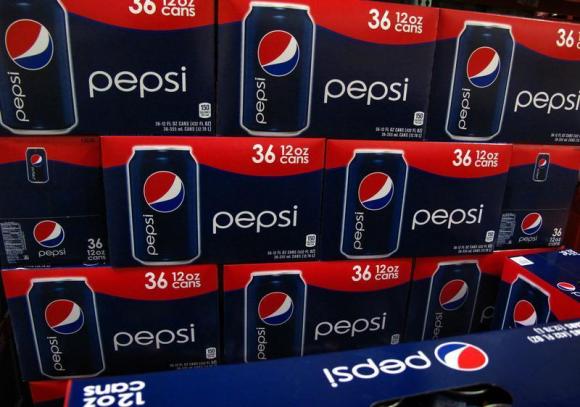 lson Peltz renewed his crusade to convince PepsiCo Inc to spin off its beverage business from its flourishing snacks division, less than a week after the company poured cold water on the idea.
lson Peltz renewed his crusade to convince PepsiCo Inc to spin off its beverage business from its flourishing snacks division, less than a week after the company poured cold water on the idea.Shares of PepsiCo, whose snack brands include Lays, Cheetos and Doritos, rose as much as 2.3 percent on Thursday.
"Two leaner and more entrepreneurial companies" through the spin-off would boost sales and margins in the snacks business, while the drinks business would generate stable flow of cash that could be returned to shareholders, Peltz said in a 37-page letter to PepsiCo's board made public on Thursday.
Some investors and experts sided with Peltz, whose investment fund has successfully advocated for break-ups and mergers at major food companies, even as PepsiCo executives defended their position.
"The points that (Peltz) lays out ... are for the most part very valid and compelling and he makes a very good case for the potential split up of the businesses," said Kevin Dreyer, a portfolio manager at Gabelli Funds LLC, which owns about 1.6 million shares of PepsiCo.
Even if PepsiCo did not split up, Peltz's presence will keep management under pressure to improve the business, Dreyer said.
PepsiCo, which also sells Gatorade and Tropicana juices, reported a better-than-expected quarterly profit last week, helped by a 3 percent rise in snacks volumes. However, beverage volumes fell sharply in North America.
At the time, PepsiCo shot down Peltz's proposal, with Chief Executive Indra Nooyi saying a split up would hurt its ability to negotiate with retail customers.
PepsiCo reiterated on Thursday that it had no plans to split up. "Our focus is on delivering results for our shareholders, not new, costly distractions that will harm shareholder interests," a PepsiCo spokesman said in an email.
"We've looked at this from every single angle and we're absolutely convinced this is the right decision for the company," Brian Cornell, chief executive of PepsiCo Americas, said at the Consumer Analyst Group of New York conference in Boca Raton, Florida.
The interplay between the beverage and snacks business has opened doors for PepsiCo, Cornell said.
Beverage "is a big and important category for retailers. It gives us a very important seat at the table," Cornell said.
Additionally, he said, Pepsi's soft drink relationship with Taco Bell led to the Mexican fast-food chain's blockbuster Doritos Locos Tacos launch in 2012 and has led to opportunities with other restaurant chains.
"The beverage plus food model is a good one, an even superior one, given the power it gives to manage retail," said Bevmark Consulting Chief Executive Officer Tom Pirko.
But the model can be counterproductive if not well implemented, Pirko said.
"Those of us who advise and run numbers see a strong gravitational pull, that Pepsi would at this time be better as two distinct entities," he said.
INFLUENTIAL INVESTOR
Peltz, who began his campaign to split up PepsiCo in July, said he will begin meeting shareholders immediately to gather support for a split.
Peltz's investment firm, Trian Fund Management, owns about $1.2 billion of PepsiCo stock.
The billionaire investor has influenced food industry deals such as the spin-off of Dr Pepper Snapple Group from Cadbury, Kraft's purchase of Cadbury and the subsequent breakup of Kraft into Mondelez International and Kraft Foods Group Inc.
Peltz also owns stakes and serves on the boards of The Wendy's Co (WEN.O), asset manager Legg Mason Inc and diversified U.S. manufacturer Ingersoll-Rand PLC.
The investor had previously pushed PepsiCo to create a snack food giant by acquiring Oreo cookie maker Mondelez but dropped the idea after winning a seat on the Mondelez board last month.
Peltz said on Thursday PepsiCo continues to lose market share to Coca-Cola in the Americas where it has been consistently "out-innovated" and "outmaneuvered," which is putting increasing and unnecessary pressure on the company's other divisions such as Frito-Lay.
PepsiCo, like rival Coca-Cola Co, has been battling declining soda sales in developed markets, especially the United States, as health-conscious consumers switch to non-carbonated beverages such as juices and health drinks.
Peltz's letter to PepsiCo's board was first reported by the Wall Street Journal on Wednesday.
Coca-Cola on Thursday announced that Chief Financial Officer Gary Fayard would retire in May after serving the company for more than 20 years.
Fayard will be replaced by Vice President and Controller Kathy Waller, who joined Coke in 1987 from Deloitte.
PepsiCo shares were up 1.6 percent at $78.29 in afternoon trading on the New York Stock Exchange.





